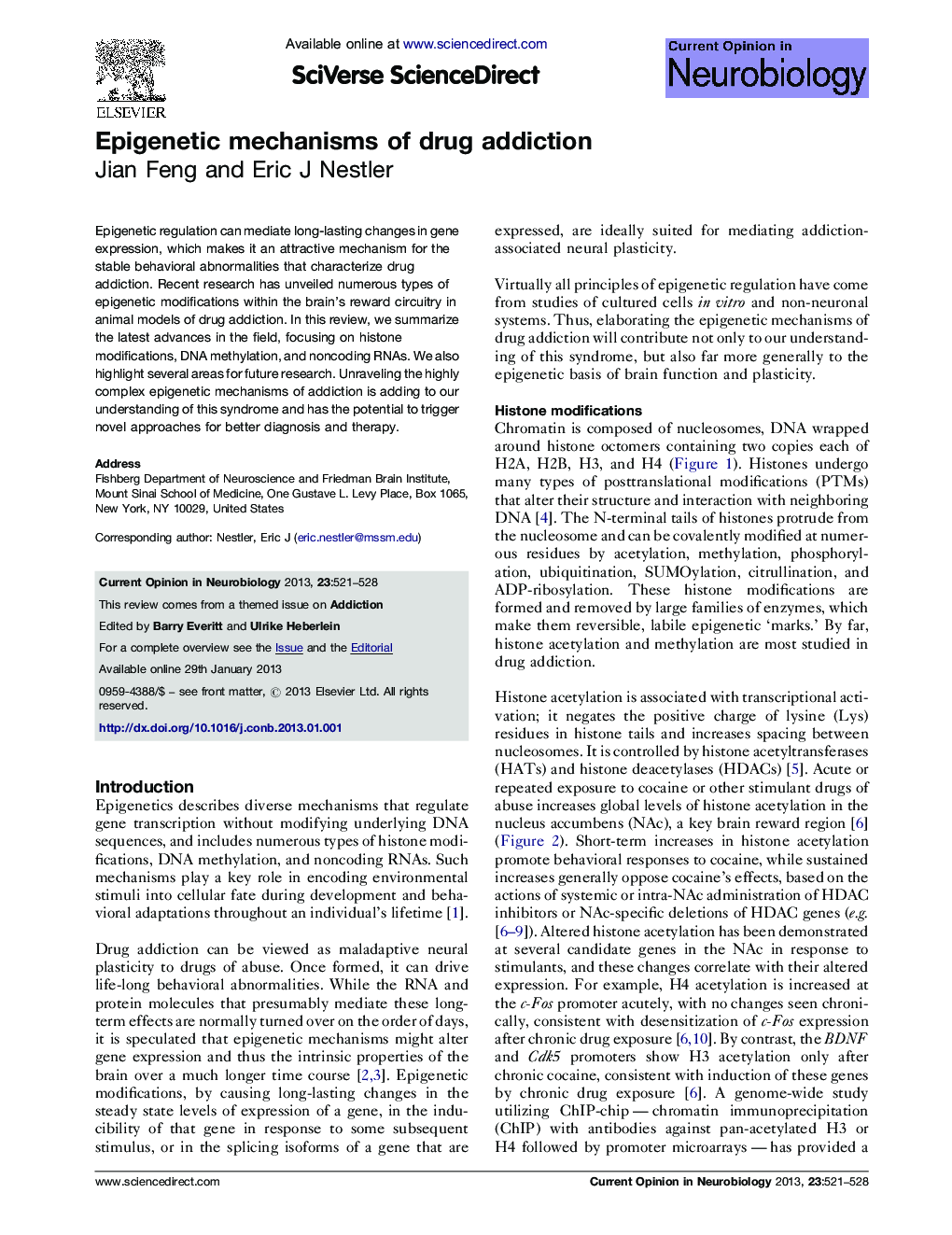| Article ID | Journal | Published Year | Pages | File Type |
|---|---|---|---|---|
| 6267088 | Current Opinion in Neurobiology | 2013 | 8 Pages |
Epigenetic regulation can mediate long-lasting changes in gene expression, which makes it an attractive mechanism for the stable behavioral abnormalities that characterize drug addiction. Recent research has unveiled numerous types of epigenetic modifications within the brain's reward circuitry in animal models of drug addiction. In this review, we summarize the latest advances in the field, focusing on histone modifications, DNA methylation, and noncoding RNAs. We also highlight several areas for future research. Unraveling the highly complex epigenetic mechanisms of addiction is adding to our understanding of this syndrome and has the potential to trigger novel approaches for better diagnosis and therapy.
⺠Role of histone acetylation and methylation in drug addiction. ⺠Role of DNA methylation, 5-methylcytosine and 5-hydroxymethylcytosine in addiction. ⺠Role of microRNAs and long noncoding RNAs in drug addiction.
